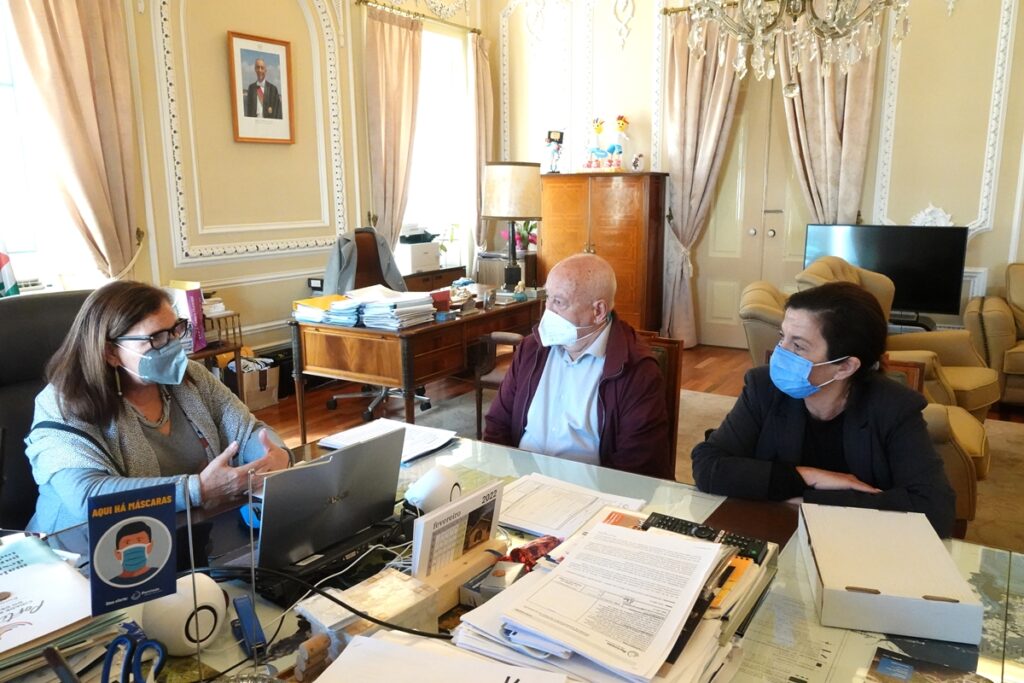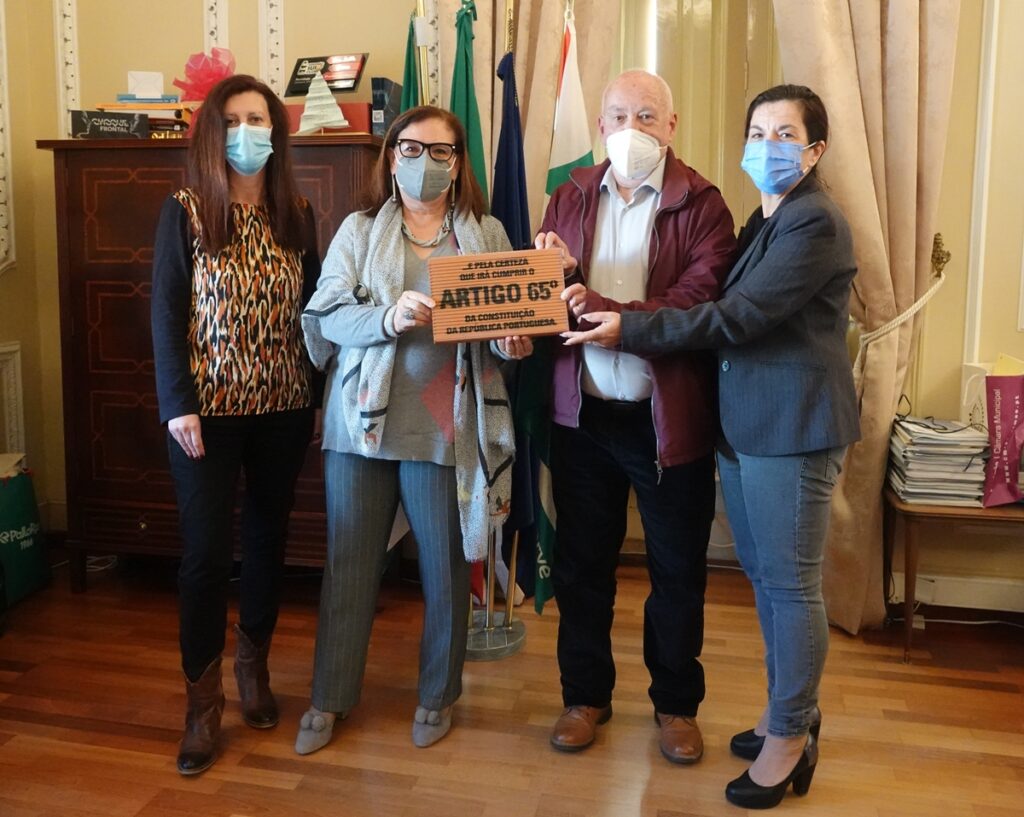The Mayor of Portimão received, on March 8, a delegation from EAPN Portugal – European Anti Poverty Network, led by Dionísia Pedro, representative of the Algarve nucleus of this body, who symbolically delivered to the mayor a brick that constitutes the “ First Stone” in the construction and implementation of more effective and efficient responses, oriented towards citizens, in the access to decent housing.
The delivery of the “First Stone” is part of the national campaign launched last year, as part of the commemorations of the International Day for the Eradication of Poverty, and which aims to raise awareness among the public and political power, namely municipalities, of the need to enforce the fundamental right to housing enshrined in the Portuguese Constitution, in particular for the population with lower incomes.
On the occasion, Isilda Gomes spoke about the municipal strategy to eradicate poverty, with the objective of “zero hunger in Portimão”, and highlighted that the Municipality develops a set of projects to combat the needs of disadvantaged people, for which it has “ an authentic network of goodwill, whose mesh is very tight, with everyone very dedicated in the social area.”
The mayor recalled the three extraordinary program contracts implemented in the wake of Covid-19, ensuring financial liquidity for local associations that deal with the most needy.
Regarding this campaign for the right to housing, Isilda Gomes noted that there are approximately 80 million euros for Portimão that have been filed with the IHRU – Institute for Housing and Urban Rehabilitation within the scope of the local housing strategy.
The president also addressed the relocation of 28 families of gypsy ethnicity to Vale da Arrancada, whose community is supported on the ground by a permanent team of technicians from the municipality, underlining the work being carried out through the (Re)viver o Meu Neighborhood, to support the most vulnerable populations residing in city councils.
Under the responsibility of the Municipality of Portimão, there are other social measures in progress aimed at needy families, examples of which are support for renting housing in the private market, contributing to the elimination of situations of precarious housing in 262 households, as well as the tariff water, which consists of the payment of water by the 1st tier and exemption from the urban solid waste and sanitation fee, in accordance with the regulation contained in the program contract established between the Chamber and EMARP for the adoption of social prices and which currently benefits 656 households.
Another relevant initiative concerns the support for the acquisition of medication, which involves 12 pharmacies in the municipality and allows people in need not to be deprived of their medicines, for which a financial contribution is guaranteed at XNUMX% of the amount that is up to the citizen. in the respective acquisition, upon medical prescription.
“The municipalities are at the forefront in the fight against poverty and Portimão is an example of this, because globally I don't know if there will be many municipalities that have a set of projects like the ones we have”, maintained Isilda Gomes.
For a fairer and more solidary societyCreated in 1991, EAPN Portugal's mission is to contribute to the construction of a more just and solidary society, in which everyone is co-responsible for guaranteeing citizens' access to a dignified life, based on respect for Human Rights and the full exercise of a informed, participatory and inclusive citizenship.
With an accumulated experience of almost 30 years in the fight against poverty, and with the objective of influencing social policies in defense of a less unequal and more inclusive society, this campaign is based on the fact that housing constitutes the basis of a stable society and the foundation from which individuals and their families build the conditions that allow them to access other rights, such as education, health or employment.




















Comments